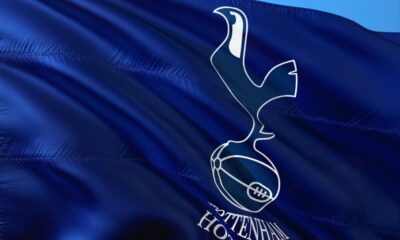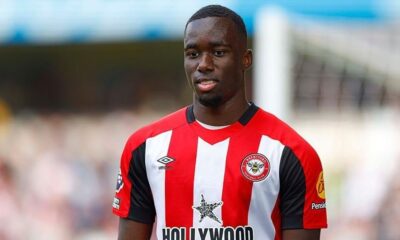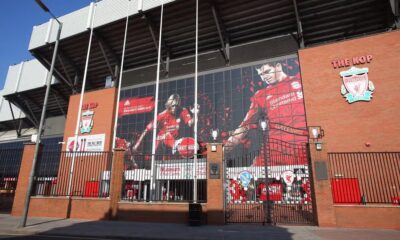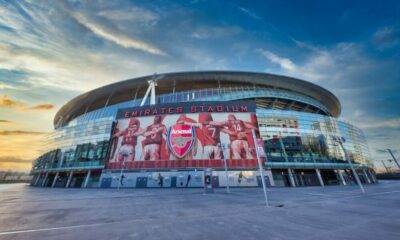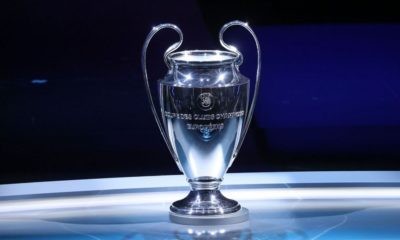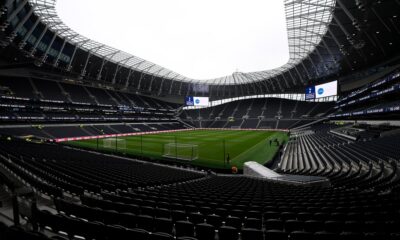Tottenham General News
Spurs’ Hall of Fame: Chapter three: Bobby Smith, the battering ram
Written by Viorel Mesca
In his first five years at White Hart Lane, Bobby Smith became the top goal scorer in Spurs’ history at that moment, and one could argue that Bill Nicholson’s side, the first in the 20th century to win the double (League and FA Cup), was the most effective when Smith was in the first line of its attack.
Born at Scarth Street, Lingdale, Yorkshire on February 22, 1933, Robert Alfred Smith attended Lingdale Council School. On leaving school, he joined his father working in the local ironstone mine, as an apprentice blacksmith, shoeing the ponies which pulled the wagons of coal, playing football from time to time purely for recreation.
Bobby originally played as an unremarkable full back for Redcar Albion and Redcar Boy’s Club. The legend has it that one day the team’s centre forward didn’t show up, giving Smith the chance to fill his shoes. Smith scored twice in a 3-2 victory, a breakthrough performance which secured him the centre forward role before being spotted by Chelsea. He signed as an amateur with the London-based club but after only one month he felt homesick and returned to Lingdale, only to be hurried back to Stamford Bridge by his father with the parental request to show Chelsea what he was made of.
So he did, turning professional in 1950 and graduating to the Pensioners’ First Division line-up as a 17-year-old in September, his seven goals in 16 games helping to preserve the struggling Londoners’ top-flight status. Mention should be made that Bobby scored a hat-trick in the 1949-50 London FA Youth Cup Final against Spurs at Stamford Bridge and traveled with the England squad to Vienna for the International Youth Tournament there during May, 1950.
Another memorable performance came in March 1952 when Bobby scored a magnificent hat-trick against Leeds United at Villa Park, in a FA Cup replay, one goal involving a great dribbling past “Il Gigante Buono”, John Charles.
In the 1954 – 1955 season he didn’t play enough games for Chelsea (who would eventually win the League,) so he transferred to Tottenham for a £16,000 fee on December 21, 1955. In all competitions, he scored 30 goals in 86 games for Chelsea.
Bobby made his Spurs debut against Luton Town three days later but had to wait until January 21, 1956 to net his first goal for Spurs, at home to Everton. Handed the captain’s armband for the final game of the season, he scoried a hat-trick versus Sheffield United on April 28. Wearing the no. 10 shirt, his goals helped Spurs to avoid relegation, but only after replacing veteran Len Duquemin as a centre forward, did he become Spurs’ legendary battering ram.
Over the next five years he scored for fun, registering 19, 38, 36, 30 and 33, eclipsing the club record set by George Hunt in the 1930s.
In 1956-57, due to improving Spurs attack with the help of creative midfield duo of Danny Blanchflower and Tommy Harmer, Smith excelled as Tottenham finished as runners-up to Manchester United, becoming a fan favorite. A memorable highlight the following season was a hat-trick against the Busby Babes at Old Trafford, shortly before the devastating Munich air disaster.
Spurs rose to third place in 1959-60, thanks to the wonderful work of new manager Bill Nicholson – but Smith was displeased with himself, declaring that his brief spring scoring drought cost his side the title. In 1960-61, everything worked fine as Tottenham became the first club in the 20th century to complete the League and FA Cup double. Occasionally, he supplied moments of fancy footwork, such as a deft flick against Sheffield Wednesday or his goal against Leicester City in the FA Cup final (a wily dummy to gull a marker, a sure touch to control the ball and a coolly dispatched shot).
Having been joined by the prolific Greaves during 1961-62, Smith found that he was fungible. However, manager Nicholson tended to use him for the big games and he remained a major figure as Spurs became the first British winners of a major European trophy, thrashing Atletico Madrid 5-1 in Rotterdam to lift the Cup-Winners’ Cup in 1963.
In May 1964 he was replaced by the young Frank Saul and transferred to Fourth Division Brighton for £5,000 and helped them to the Fourth Division title the following season. When Brighton announced his arrival season ticket sales soared and more than 20,000 fans packed the Goldstone Ground for the season’s opener against Barrow, as Smith responded with two goals in a 3-1 win.
On leaving Brighton during October, 1965 Bobby joined Hastings United. He had a trial spell with Orient during March, 1967 and a stint with Banbury United the following year.
Smith was a frequenter of racecourses and dog-tracks as he departed White Hart Lane aggrieved by his lack of funds, and when reminded of his glittering achievements declared bitterly that memories would never pay his bills. As his weight ballooned, away from football he hit hard times. Working as a painter and decorator he fell down a manhole and suffered a serious foot injury, and he was troubled by old football wounds. Laboring and driving jobs followed and periodic financial hardship was exacerbated by betting unwisely.
As Smith put it, he spent too many post-football days ducking, diving and gambling, and though he offered a cheerful front at dinners and other functions, much of his retirement was spent regretting his profligacy during his pomp with Spurs and England.
He was also the subject of two books; The Bobby Smith Story in Pictures, published by Brighton & Hove Albion during 1965; and My Memories of Spurs, published by Britespot during 2002.
He passed away at an Enfield hospital following a short illness on September 18, aged 77.
Bobby’s England career spanned three years and 43 days, gaining 15 full caps and netting 13 goals. He scored in each of his first five internationals and was on the winning side in his first five and last five games. First selected by England for the 1958 World Cup squad, he took just 16 minutes to score the opening goal on his debut, in a 5-2 win over Northern Ireland at Belfast on October 8, 1960.
Bobby’s 208 goals for Spurs came against 39 different clubs. He scored 17 versus West Bromwich Albion, 12 apiece versus Blackpool and Wolves and 11 versus Aston Villa, Bolton, Everton and Manchester United.
Bobby notched 11 hat-tricks during his time with Spurs. Ten came in First Division matches with the exception being his four goal haul against Crewe Alexandra in an FA Cup fourth round replay.
He was a classic ‘old-fashioned’ centre-forward, big, bustling, tough and uncompromising and will always be remembered as one of Spurs’ greatest goal scorers.




